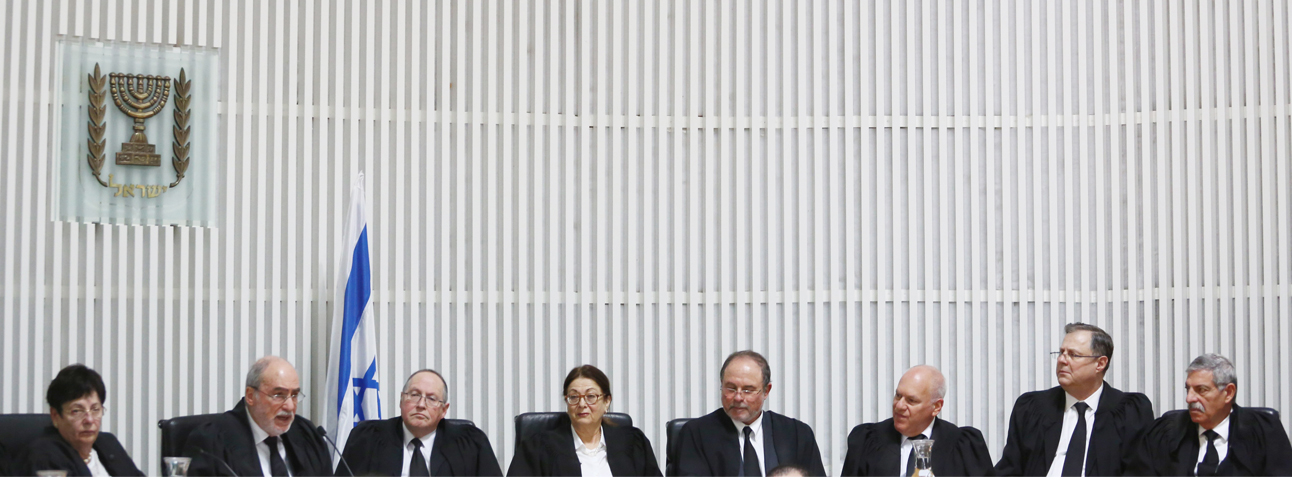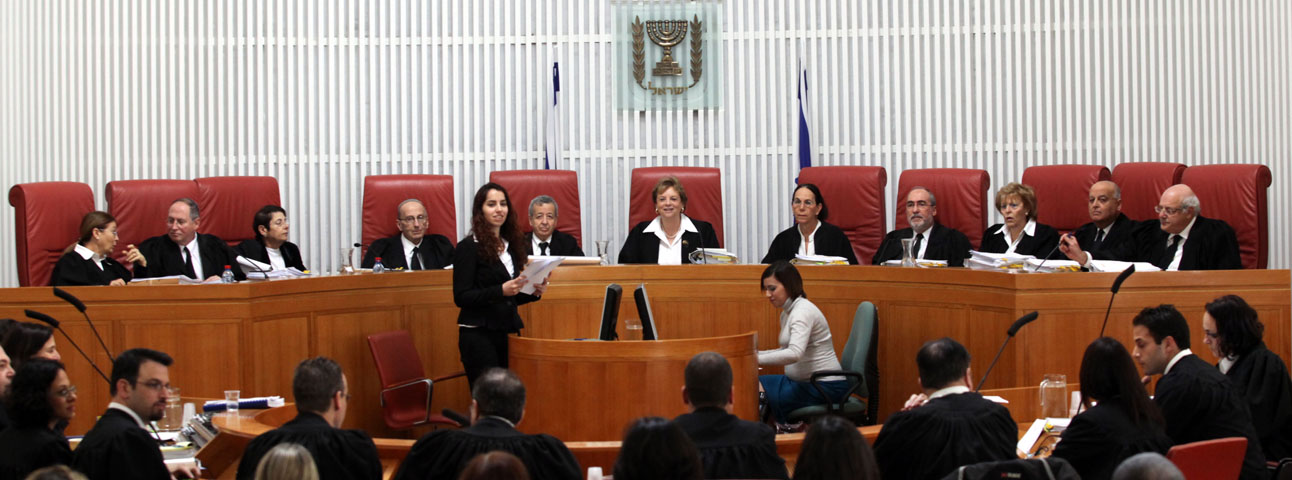A Dishonorable Burial of the Constitutional Regime

Some coalition partners seem determined to modify the current balance between the judicial and legislative branches. At the top of their agenda is a proposed amendment to Basic Law: The Judiciary, which will strip the Supreme Court of the power to invalidate legislation (“the British model”), or alternatively, would allow the Knesset, by a vote of 61 of its members to reinstate a law that the court has struck down (“the override clause”).
These proposals have a certain appeal to them. The Knesset is an elected body that represents the collective will of its citizens. The court must not have the audacity and arrogance to annul what the people “want” as expressed by their elected representatives. A current example proves this: A majority of the Israeli public wants to deport the “infiltrators,” but the court has rejected this policy by declaring it unlawful.
These proposals pose a grave threat to every single Israeli citizen.Yedidia Stern
And yet – we cannot be gentle with our words here – these proposals pose a grave threat to every single Israeli citizen. Either proposal would allow for the Knesset to pass any legislation it wishes – without any restriction – including laws that would infringe upon the most elementary human rights of groups and individuals.
Allow me some examples. Should either of these proposals be instated, there could be future laws that assault the dignity of the economically disadvantaged (eliminating or limiting the right to strike and the cutting back of social allowances that are essential for basic survival); laws that undermine the democratic system (party financing in a way that favors large parties, or the diminishing of the authority of the attorney-general, Knesset committees and the state controller); laws that undermine freedom of expression (censorship of the arts, restrictions on the media and the stifling of the voice of civil society organizations); laws that discriminate on the basis of gender (exclusion of women from the public space and military units and the curtailing of LGBT rights); laws that attack freedom from religion (a return to coercive legislation related to Shabbat, Kashrut and personal status); or freedom of religion (by a different coalition than our current one, of course); and even laws that infringe upon the rights of the majority (a law that defers the military conscription for the ultra-Orthodox without any meaningful limits on it).

’I'M NOT making this up. All these examples have been or are currently up for debate, and might be implemented in the future. Loosening the reins of the judiciary might well tempt the coalition partners to flex their muscles and breach the equality, freedom and basic human rights of many of us. In the long run, the government’s appetite – one that has always been restrained by the knowledge that there is a “responsible adult” in the Supreme Court – will grow. In the absence of checks and balances, the coalition will rule on the basis of last night’s public opinion poll.
Make no mistake: The Supreme Court must limit its intervention to extreme cases where the threat is unmistakable. It bears part of the responsibility to avert aggravating the relationship between the political echelon and the judiciary.
The Knesset is not unethical or opposed to human rights. Nevertheless, it is quite clear that Knesset members are motivated chiefly by political interests. We live in a chronically divided society on shifting sands. The public arena is battered by storms, racked by perpetual crises that fan a Kulturkampf. In this atmosphere, the fear of a hot-blooded populist moment, in which the state loses its equilibrium and commitment to human rights, is not baseless.
The Israeli public – a patchwork quilt of minorities – understands this danger. Despite the incessant demagoguery against “judicial imperialism,” 58% believe that the Supreme Court should not be stripped of its power to strike down laws. This includes a majority of those who voted for Kulanu (72%) and even of those who support the Likud (53%). When Netanyahu pushes this kind of legislation he is playing into the hands of ultra-Orthodox supporters and the Bayit Yehudi Party, who are eager for such a law. Israelis have more faith in the Supreme Court (55%) than they do in the Knesset (21%), and these numbers constitute a firm statement against such detrimental proposals.
The current government wants to cut into the flesh of laws which we hold at our core – laws that were promised in the The Declaration of the Establishment of the State of Israel of May 14, 1948. If the Knesset is prepared to overrule these fundamental laws by means of the bare majority required to form a government, the constitutional regime in Israel will undergo a dishonorable burial. Is this really the present the government wants to give its people on Israel’s 70th birthday?
The article was first published in the Jerusalem Post

